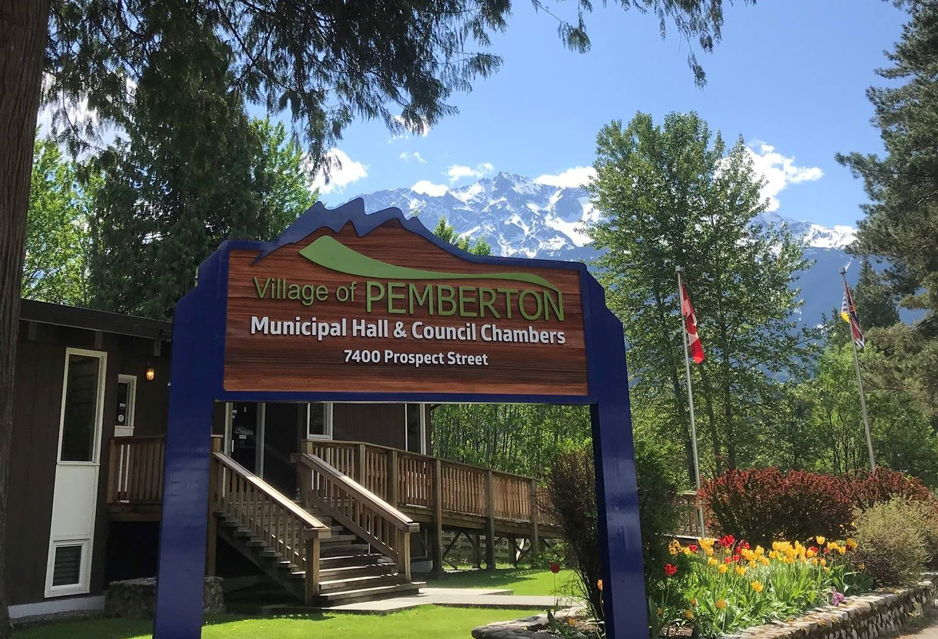Pemberton council had its first look at the upcoming budget process during a Committee of the Whole meeting on Tuesday, Oct. 8.
Thomas Sikora, manager of finance, presented a high-level overview of the Village of Pemberton’s (VOP) budget timeline, which ends in spring 2025.
Next year’s priorities outlined are: plan and manage growth, be prepared, protect our environment, cultivate trust, and operate with excellence. Perhaps surprising to residents, Sikora noted only 24 per cent of the budget goes to the first four priorities. That’s because the last one, operating with excellence, covers core services necessary for a functioning community, like water, sewer and road maintenance, making up the other 76 per cent of the pie.
Nov. 5 is the first pass of the VOP’s operational budget, and utility, capital, five-year plan, reserves, tax implications and funding will come at later dates, allowing a long runway for feedback on each piece.
Reserves needed for aging infrastructure
Pemberton’s modus operandi is to continue balancing its budget and building reserves. Sikora also made sure to note preliminary market assumptions show “significant” pressure on expenses.
“We’re seeing double-digit cost increases. We’re working through challenges, understanding what’s controllable and what we can manage,” he said.
Contributing to that pressure is aging infrastructure and equipment. With age comes higher maintenance costs and failure rates, so the VOP plans to bolster reserves for infrastructural upkeep and upgrades.
When it comes to infrastructure, rising construction costs are “not something you can negotiate away,” he said.
“It’s a very healthy reminder of constraints were facing,” said Councillor Katrina Nightingale.
Sikora asked council to consider what service objectives they have and come prepared with ideas for the upcoming operations budget, as services are a “critical” component of the budget planning process.
“[Service objectives] are a great mechanism to change what we see in the budget,” he said.
An example he gave of critical services councillors could advocate for include snow removal services.
More time allotted for budget process
Pemberton staff and council will have additional time for the budgeting process, with the overall timeline for the 2025 budget coming one month earlier. There are also earlier year-end audits, operating budget comparisons, project charters, contract reviews and an upcoming budget open house.
The VOP plans to send out a survey to residents, likely in the spring, “to understand which services residents want to see, giving increased metrics to understand performance,” Sikora said.
By 2026, taxes for Pemberton’s long-awaited recreation centre slated for Den Duyf Park will shuffle. Currently, taxes for the planned centre come from the Squamish-Lillooet Regional District, and once the rec centre contract for Den Duyf Park is refined, tax collection will land in the lap of the VOP. While there is no net cost increase because of the collection swap, residents will see the VOPs tax collection for recreation increase, and their share from the SLRD will go down in equal proportions, according to Sikora.
One planned tax hike weighing on the minds of finance staff is future policing costs. Once Pemberton’s population reaches 5,000, the VOP is responsible for funding the service.
Data published by B.C.’s Ministry of Public Safety and solicitor General Policing and Security Branch from 2020 show costs for policing in rural a municipality with a population around 5,000 ranges widely, from around $140,000 to over $1.7 million.
The draft budget timeline goes from September to March, and council reviews from October until May 2025.
Sikora said public feedback is “critical” and highlighted feedback mechanisms.
Committee of the Whole budget sessions are posted online, which residents can review on the Village’s website. Sikora invites written feedback to council and staff and suggests the public attend this spring’s budget information session. . Email [email protected] to engage in the budget process.
“Candidly, we don’t see enough of that,” he added.




